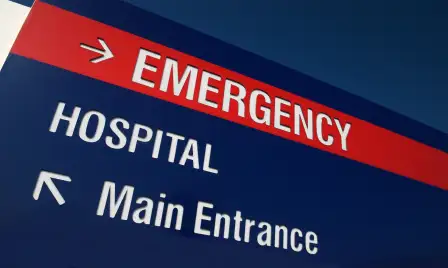
Was it an abundance of caution or downright panic that led a White House panel to suggest a second wave of swine flu could kill up to 90,000 Americans? Given the scope of the first outbreak this spring, and the approaching flu season, probably a mix of both. The Centers for Disease Control (CDC) counted almost 44,000 confirmed and probable cases of the novel H1N1 virus in the U.S., but estimates a full million Americans likely contracted the illness. The White House panel estimates that as many as 1.8 million could be hospitalized in the second go-around.
Scared yet?
Fortunately, these are all just estimates, and no one really knows how bad swine flu will be the second time around. As Health and Human Services Secretary Kathleen Sebelius pointed out, “We won’t know until we’re in the middle of the flu season how serious the threat is.” Of course, that means it could go either way, but it also underscores the importance of preparing for the worst and, for travelers, knowing what policies are in place to protect you and others from exposure.
Tips for the Traveler
- First off, if you have the flu, don’t travel! Wait until 24 hours after your fever is gone.
- If you are refused plane entrance, and do not have swine flu, travel insurance may not protect you. You should seek compensation from the airline.
- If you are traveling in a country where swine flu is prevalent, avoid large gatherings and public transportation if possible.
- If you become ill, travel insurance should protect you if you weren’t ill when the policy was purchased (unless, of course, your policy doesn’t cover epidemics or pandemics—and many don’t). If you are unable to board a plane or cruise ship, or are quarantined when you arrive at your destination, you should be covered if you are diagnosed with swine flu by a doctor.
- Also check with the U.S. consulate or embassy for help in finding health care if you become sick while traveling.
- WebMD has a comprehensive list of tips for parents. The advice isn’t travel specific, but is useful nonetheless.
What the Airlines Are Doing
Abby Lunardi at Virgin America told me she thinks airlines are “well-prepared and used to gearing up quickly,” and cited the previous swine flu outbreak, as well as SARS, as teachable moments for the industry. “[Virgin America’s] flight crews are trained in First Aid procedures and also to be aware of airborne pathogens. We’ve also introduced antibacterial hand wipes and gel on planes and at airports for crew and guest use.” Virgin America also provides masks for potentially ill guests.
Continental goes to great lengths to protect its employees from the flu, including mandatory flu shots and clinics in hub cities.
As far as cancellations, it’s not clear how airlines will handle things. If H1N1 erupts in a single country or region, as it did last time in Mexico, airlines will likely cancel flights and offer free changes for that destination. Otherwise, travelers nervous about canceling due to illness should consider travel insurance. QuoteWright has a nice breakdown on what to look for when buying.
It should be noted that Mexico City is offering free coverage for medical emergencies, including hospital stays, prescriptions, and ambulance service.
What the Cruise Lines are Doing
Carolyn Spencer Brown, Editor-in-Chief of our sister site CruiseCritic, says “cruise lines—and cruise ports—aren’t yet as savvy about dealing with possible swine flu outbreaks as they are with norovirus. When there are outbreaks, there’s still quite a bit of confusion. The good news is that the lines are honing procedures for dealing with passengers and crew who may have swine flu symptoms, modeling the effort on policies established because of norovirus.” CruiseCritic has a nice roundup of resources for cruise travelers.
MSC Cruises is using thermal imaging scanners to detect passengers with fevers—and potentially with swine flu. According to the CDC, some countries are also requiring this, in addition to taking travelers’ temperatures and reviewing swine flu symptoms and information.
More information will become available if and when H1N1 returns. And if it doesn’t, well, at least we can say we were prepared. But until then, follow common sense (sneeze into tissues, wash your hands, and so forth) and stay healthy!
We hand-pick everything we recommend and select items through testing and reviews. Some products are sent to us free of charge with no incentive to offer a favorable review. We offer our unbiased opinions and do not accept compensation to review products. All items are in stock and prices are accurate at the time of publication. If you buy something through our links, we may earn a commission.
Related
Top Fares From
Today's Top Travel Deals
Brought to you by ShermansTravel
Kenya: 14-Night Tour, Incl. Tanzania &...
smarTours
 vacation
$7125+
vacation
$7125+
7-Night Caribbean Round-Trip Cruise From Orlando:...
Norwegian Cruise Line
 cruise
$739+
cruise
$739+
Ohio: Daily Car Rentals from Cincinnati
85OFF.com
 Car Rental
$19+
Car Rental
$19+



